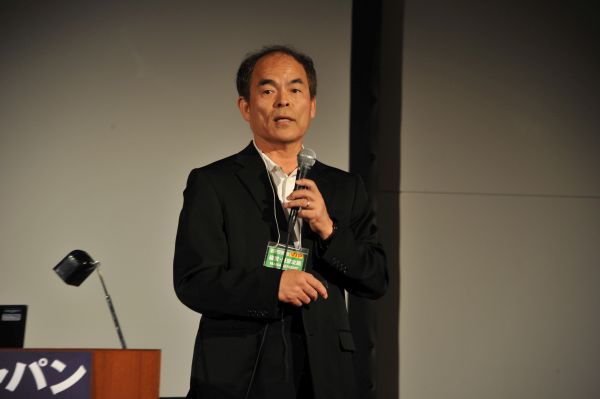Laser diode is a next generation lighting technology incubating in Shenzhen, China, giving hope that the region will emerge as a leading international laser lighting player soon.
Nobel laureate for blue LEDs and the inventor of blue lasers, Shuji Nakamura, along with Guangdong province authorities including Secretary of CPC Municipal Committee Xingrui Feng, Shenzhen mayor Qin Xu, attended the unveiling of Nakamura’s new laser diode lab in Zhongguang Industrial Technology Lab in Shenzhen.
 |
|
Shuji Nakamura at a press conference in January 2016. (LEDinside) |
Nakamura was appointed the roles and titles of honorary director of the R&D lab, director of the academic committee, and director of laser diode laboratory.
The laboratory established is part of an international technology and innovation hub in Shenzhen, as the city actively constructs ten greatest Nobel Prize scientist laboratories, and top 10 research institutions to improve its innovation capacity. The local government is aiming to create a second lab headed by a Nobel Prize winner on this major innovative platform.
Earlier in June this year, China’s Southern University of Science and Technology partnered up with Nobel Prize laureate in chemistry Professor Robert Grubbs at Caltech to establish the Grubbs R&D center to develop new medicines, equipment, and renewable energy.
Nakamura is currently a Professor of Materials Department Research Director for the Solid State Lighting (SSL) and Energy Electronics Center at University of California. He was a pioneer in developing high brightness blue LEDs in 1993, which earned him the nickname “the father of blue light”, and developed blue GaN diode based blue laser technology. The Japanese researcher was awarded a Nobel Prize in physics on October 2014 for his invention of efficient blue LEDs, which enabled bright and energy-saving white light sources.
At the unveiling ceremony, Nakamura highlighted laser technology will become the next major trend in future display industries, where blue diode lasers point towards a brighter future. Shenzhen, which is “China’s Silicon Valley,” is very active in innovation. Following improvements in LED and laser technology, Shenzhen government committee has been very supportive of laser lighting industry developments, which helped laser lighting technology R&D and industry develop good and unique environment conditions. Nakamura will work with the team to bring the world’s most advanced laser technology to Shenzhen, accelerate core technology developments, contribute to driving innovation in the city.
Xu congratulated the R&D lab’s establishment and welcomed people to participate in the construction of the special economic zone. Shenzhen’s special economic zone is actively constructing new labs headed by Nobel Prize winners to promote scientific developments in related industries to speed up innovation. The Shenzhen city government has been very supportive of research lab developments and is working on providing Nakamura’s team a good work environment for their local lab.
Lasers is a disruptive next generation lighting technology that can impact the industry developments to reach more than RMB 100 million (US $14.39 million) market value, and is one of the largest semiconductor bases in Shenzhen. The Chinese city Shenzhen is becoming an important semiconductor hub, and an important area for laser developments. Nakamura’s laser light research lab in Zhongguang Industrial Technology Lab will become a core innovative platform for laser technology that can accelerate commercialization of laser research.











